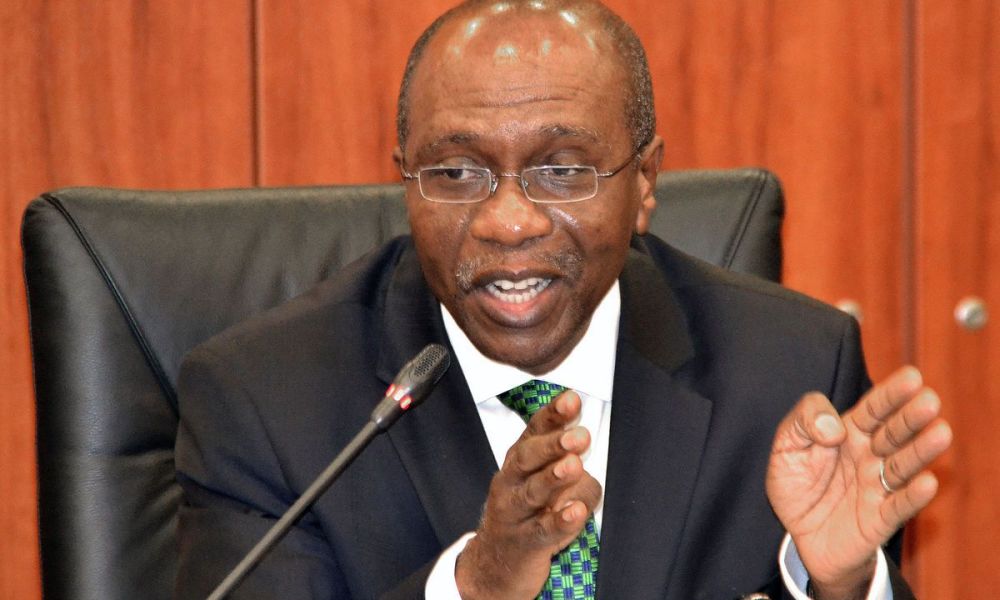‘Why Banking Sector Recapitalisation Inevitable’
Governor of the Central Bank of Nigeria (CBN), on Monday, unveiled his plans for his second five-term, even as he reeled out achievements between 2014 and 2019, including a reduction in the ratio of Non-Performing Loans of banks from 15% in May 2017 to 9% last month.
Addressing a press conference on the 5-year Policy Thrust of the CBN under his watch, Emefiele also spoke on “a programme of recapitalizing the Banking Industry so as to position Nigerian banks among the top 500 in the world.”
He promised closer collaboration with the Federal Government to enable the country to achieve double-digit growth by the next five years.
The CBN, he continued, is committed “to working assiduously to bringing down inflation to single digit; while accelerating the rate of employment.
In summary, he continued, priorities of the CBN in his second term will be preservation of “domestic macroeconomic and financial stability; Second, foster the development of a robust payments system infrastructure that will increase access to finance for all Nigerians thereby raising the financial inclusion rate in the country; Third, continue to work with the Deposit Money Banks to improve access to credit for not only small holder farmers and MSMEs but also Consumer credit and mortgage facilities for bank customers. Our intervention support shall also be extended to our youth population who possess entrepreneurship skills in the creative industry.”
He also pledged that the CBN will continue to encourage the deposit money banks to ensure they direct more focus in supporting the education Sector, besides growing our external reserves; and supporting economic diversification efforts through the various intervention programmes in the agriculture and manufacturing sectors.
These he believes, “will help to insulate our economy from potential shocks in the global economy.”
Macroeconomic tools, he continued, will over the next five years be directed towards supporting improved GDP growth and greater private sector investment, while leveraging monetary policy tools to support a low inflation environment and maintaining exchange rate stability.
To achieve this, he assured that the Monetary Policy Committee (MPC) decisions on inflation and interest rates will be guided by insights generated from data on key economic variables.
“We would also strive to continue to sustain a positive interest rate regime to the delight of our important stakeholders,” he assuring that “monetary policy measures embarked upon by the CBN will be geared towards containing inflationary pressures and supporting improved productivity in the agricultural and manufacturing sectors.”
As part of cutting inflation to single-digit, the CBN boss spoke of the need to bring down the cost of food items, which have considerable weight in the Consumer Price Index basket, working with other stakeholders. A single-digit inflation rate, he said, is essential to economic growth as it will help support long term planning by individuals and businesses. This will equally lower “interest rates charged by banks to businesses thereby facilitating improved access to credit, and a corresponding growth in output and employment.”
Without necessarily admitting to weakness in the nation’s banking system, Emefiele explained that the banking sector recapitalization, similar to the 18-month exercise by the CBN under the watch of Prof. Chukwuma Soludo in 2004, is given the fact that “a resilient and stable financial system is imperative for continued (economic) growth given the intermediation role that financial institutions play in supporting the needs of individuals and businesses.”
Over the next five years, Nigerian “banks will, therefore, be required to maintain a higher level of capital, as well as liquid assets in order to reduce the impact of an economic crisis on the financial system.”
Also, given the rise in digital payments and cyber security threats, the apex bank plans to develop a robust mechanism that ensures that banks and financial institutions put all necessary safeguards in place to protect against loss of data, fraud and cyber incursions in their respective systems.
The CBN, he assured, will continuously improve on its “onsite and off-site supervision of all financial institutions, while leveraging on data analytics and our in-house experts across different sectors, to improve our ability to identify potential risks to the financial system as well as risks to individual banks.








